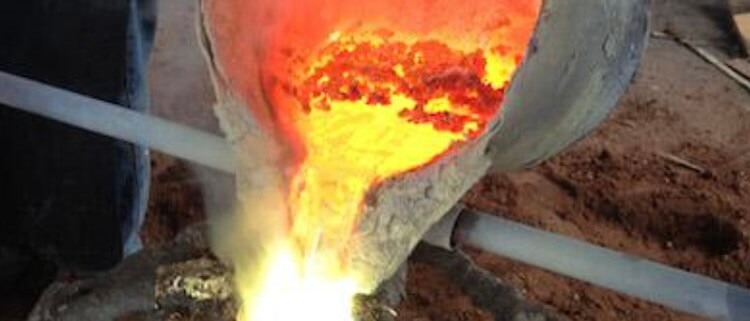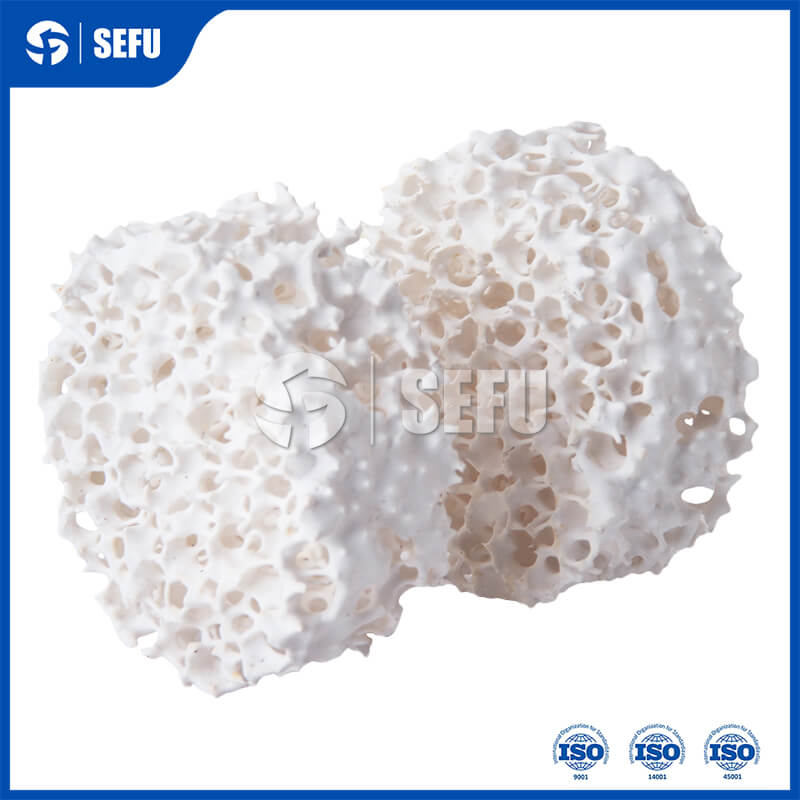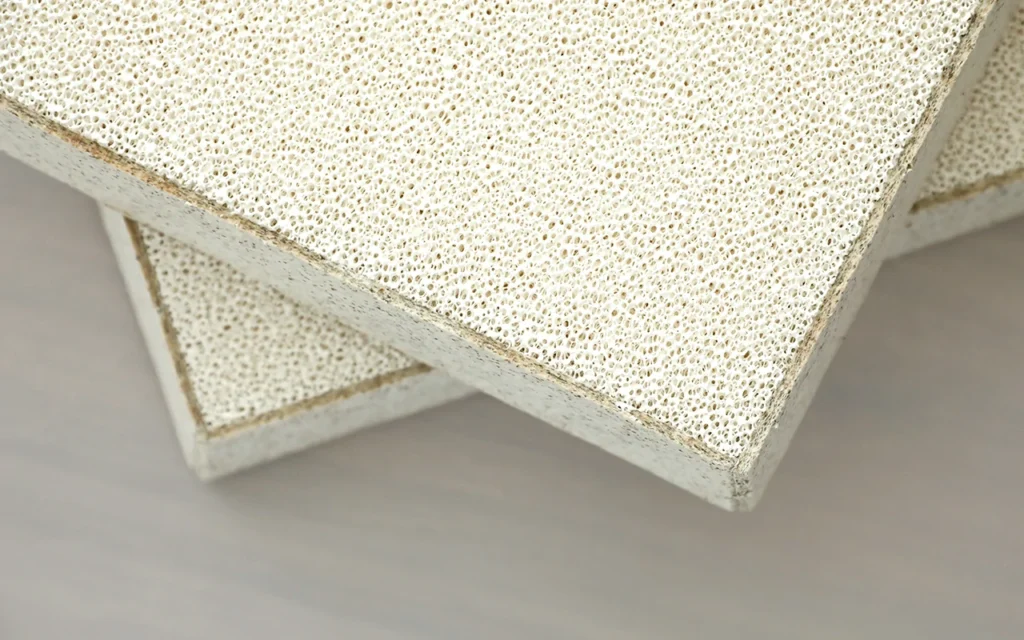As a high-performance ceramic material, silicon carbide (SiC) plays an important role in industry, technology and high-end manufacturing due to its unique physical and chemical properties. Its high hardness, excellent high temperature resistance, outstanding chemical stability and semiconductor properties make it a key material in many industries.
![]()
Foundry Industry: Key Processes to Improve Casting Quality
As a casting filter material, silicon carbide ceramics can effectively intercept non-metallic inclusions and oxides in the metal melt, significantly improving the internal quality of the casting. Its three-dimensional mesh structure not only ensures good metal liquid permeability, but also captures tiny impurities through a deep filtration mechanism. This material property makes it particularly suitable for precision casting fields that require high purity of castings, and ultimately improves the mechanical properties and surface integrity of castings by optimizing the quality of the metal melt.
Power electronics: the core of efficient energy conversion
The application of silicon carbide in the field of power electronics is mainly based on its wide bandgap semiconductor properties. Compared with traditional silicon-based semiconductors, silicon carbide devices can work stably at higher temperatures, voltages and frequencies, thereby significantly improving energy conversion efficiency. In new energy power generation, smart grids and industrial inverters, silicon carbide power modules can reduce energy loss and improve overall system performance.
New energy vehicles: promoting electrification
The rapid development of electric vehicles has put forward higher requirements for power electronic systems, and silicon carbide devices have become an ideal choice for optimizing motor drives, on-board charging and battery management systems due to their high efficiency, high power density and high temperature resistance. Electric vehicles using silicon carbide technology can achieve faster charging speeds, longer driving ranges and lighter designs, thereby promoting the progress of the entire industry.
Clean Energy: Improving the Efficiency of Renewable Energy
In the field of renewable energy such as photovoltaics and wind power, the efficient energy conversion capability of silicon carbide devices makes it a key component of inverters and converters. By reducing system losses, silicon carbide technology can improve power generation efficiency, making renewable energy more economical and competitive.
Industrial Manufacturing: Enhancing Equipment Performance and Life
The high hardness and wear resistance of silicon carbide make it an important material for ultra-precision machining, high-temperature furnaces and semiconductor manufacturing equipment. In the field of mechanical processing, silicon carbide ceramic components can significantly improve the accuracy and stability of machine tools; in high-temperature industrial environments, silicon carbide-based composite materials can extend the service life of equipment and reduce maintenance costs. These characteristics make it a key supporting material for the upgrading of modern manufacturing industry.
Aerospace and Defense: A Reliable Choice in Extreme Environments
In the field of aerospace, silicon carbide composites are widely used in engine components, thermal protection systems and spacecraft structural materials due to their excellent high temperature resistance and radiation resistance. In defense technology, silicon carbide’s high power tolerance makes it a key component of radar, electronic warfare equipment and advanced weapon systems. These applications highlight the irreplaceable nature of silicon carbide in extreme environments.
Future Technology: Exploring Frontier Applications
The potential of silicon carbide is not limited to existing industrial applications. It also shows broad prospects in frontier fields such as quantum technology, nuclear energy development and biosensing. For example, spin defects in the silicon carbide lattice can be used as carriers of solid-state quantum bits, providing new possibilities for quantum computing; in nuclear fusion research, silicon carbide’s resistance to plasma erosion makes it one of the candidates for the inner wall material of the reactor. These exploratory applications may bring breakthroughs in the future.
From power electronics to high-end manufacturing, from new energy to national defense science and technology, the diversified applications of silicon carbide demonstrate its core value as a strategic material. With the advancement of preparation technology and the reduction of costs, the popularity of silicon carbide will be further improved, and more innovative applications may be spawned. In the future, silicon carbide will not only continue to support the efficient operation of the existing industrial system, but may also become one of the key materials to promote the development of emerging technologies.



